Conference Chairs
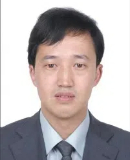
Hua-Fu Chen
Dean of School of Life Science and Technology, National High-Level Leading Talent, National Distinguished Young Scholar
School of Life Sciences and Technology, University of Electronic Science and Technology of China
Research Interests:
Brain Mapping and Pattern recognition; Magnetic Resonance imaging, Application in cognitive science, Neurological and mental disease includes: Epilepsia, depressive disorder, schizophrenia, autism spectrum disorders
Bio: Dr. Huafu Chen received his Ph.D. degree from the University Electronic Science and Technology of China (UESTC) in 2004. Outstanding youth project of National science found 2011. He has published 120 SCI index papers. His publised papers have been indexed over 3000 times by google academic paper.
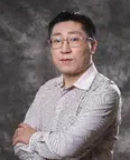
Xue-Li Chen
Leading professor of Huashan scholars
Director of Biomedical-photonics & Molecular Imaging Lab
School of Life Science and Technology, Xidian University, China
Research Interests:
Raman-based high resolution, label-free dynamic imaging technology
Len-free mode-based computational microscopic imaging technology (Flow cytometry imaging)
Fluorescence-based high resolution microscopic imaging technology
Quantitative and highly-sensitive optical imaging technology for small animals
Translational study of multimodal optical imaging for detection of cancers
Bio: Xueli Chen, Professor of Xidian University, Director of Biomedical-photonics & Molecular Imaging Lab, Director of Advanced Diagnostic-Therapy Technology and Equipment Key Laboratory of Higher Education Institutions in Shaanxi Province, Director of Xi’an Key Laboratory of Intelligent Sensing and Regulation of trans-Scale Life...more...
Conference Co-Chairs
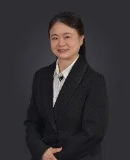
Ni-Ni Rao
Professor; Special Government Allowances of the State Council;
Academic and technical leader of Sichuan province
School of Life Sciences and Technology, University of Electronic Science and Technology of China
Research Interests:
Biomedical Signal/Image Processing, Genomic Signal Processing, Key Signal Processing Technology in Medical Instruments
Bio: Professor Nini Rao received her B.A., M.S. and Ph.D. degrees from University of Electronic Science and Technology of China (UESTC), Chengdu, China, in 1983, 1989, and 2009 respectively. Since 1989, she has been engaged...more...

Fu-Feng Liu
Tianjin Distinguished Professor;
Tianjin University Discipline Leader;
Haihe Scholar Distinguished Professor;
Xiangjiang Scholar.
School of Bioengineering, Tianjin University of Science and Technology, China
Research Interests:
Protein molecular interactions and their inhibition
Mining, modification, high-efficiency expression and application of industrial enzymes;
Bio: Fufeng Liu, Ph.D., is a professor at the School of Bioengineering, Tianjin University of Science and Technology, and the head of the Department of Bioengineering. He is a Tianjin Distinguished Professor, Tianjin University Discipline Leader, Haihe Scholar Distinguished Professor, and Xiangjiang Scholar. In recent years, with protein molecular interactions and their inhibition as the main...more...
Program Committee Chair

Jian Huang
School of Life Sciences and Technology, University of Electronic Science and Technology of China
Research Interests:
Bioinformatics and Systems Biology
Bio: Prof. Jian Huang received his doctor degree in Immunology in 2001 from Sichuan University. He was a postdoctoral fellow at Bioinformatics Center, Kyoto University...more...

BALACHANDRAN, MANAVALAN
Associate Professor
Dept of Integrative Biotechnology, Sungkyunkwan University, South Korea
Research Interests:
Bioinformatics, Data Mining, Machine Learning
Technical Committee Chairs

Peng Ren
School of Life Sciences and Technology, University of Electronic Science and Technology of China
Research Interests:
Biomedical Signal and Image Processing, Rehabilitation Engineering, Affective Computing
Bio: Peng Ren graduated from the Department of Biomedical Engineering at the University of Electronic Science and Technology of China (UESTC) with a Bachelor of Engineering in 2007. He then obtained a Ph.D. in Biomedical Engineering from Florida International University in the United States in 2013. Currently, he serves as a professor...more...

Rong Li
School of Life Sciences and Technology, University of Electronic Science and Technology of China
Research Interests:
Brain Information and Brain-like Intelligence
Publicity Chair
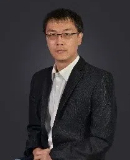
Hao Lin
School of Life Sciences and Technology, University of Electronic Science and Technology of China
Research Interests:
Designing and using computational approach to study protein and DNA
Bio: He received his Ph.D. in Biophysics in 2007 from Inner Mongolia University (Supervisor: Qian-Zhong Li). His research filed is bioinformatics and systems biology. Facing the frontier of life medicine science, aiming at the key problem of high noise and insufficient feature extraction of biomedical data, a variety...more...

Fengzhen Liu
Liaocheng Hospital Affiliated Shandong First Medical University
Research Interests:
bone regeneration and immunity
Bio: In 2014, Dr. Fengzhen Liu got PhD degree from Chinese Academy of Sciences University. In 2015, she did postdoctor in Tsinghua University. In 2016, she did visiting scholar in University of British Columbia of Canada. In 2017, she was the director of Institute for biomaterials laboratory and deputy director of scientific research department, Liaocheng People’s Hospital. In 2019,she got hospital leadership and management certificate in Harvard Medical School. In 2020, she has been awarded a scholarship under CSC. Her Research interests include bone regeneration and immunity. She published more than 50 SCI papers and 3 patents so far, got more than 20 projects and 10 rewards. She is American Science and Technology Life Member, Chinese Society for Biomaterials-Smart Biomaterials Committee Member,Chinese Society for Biomaterials-Bone Repair Materials and Equipment Committee Member,China Medicine Education Association-Medical Science Promotion Committee Member,Chinese Stomatological Association-Dental Materials Professional Committee Member.
BIBE 2025 Committee Members
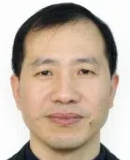
Ming Chen
Director of the Bioinformatics Laboratory at the College of Life Sciences
Department of Bioinformatics, Zhejiang University, China
Research Interests:
Bioinformatics, systems biology, non-coding RNA transcriptomics, and precision medicine.
Bio: Prof. Ming Chen is the director of the Bioinformatics Laboratory at the College of Life Sciences, and is the leading figure in the field of Bioinformatics at Zhejiang University, China. He obtained his Ph.D. in Bioinformatics from Bielefeld University, Germany, in 2004. He was seconded to the Fundamental Research Department of the Ministry of Science and Technology, served as president assistant and specially appointed dean at Inner Mongolia Minzu University.

Bin Zhang
PROFESSOR | Genetics and Genomic Sciences
PROFESSOR | Pharmacological Sciences
PROFESSOR | Artificial Intelligence and Human Health
Icahn School of Medicine at Mount Sinai, USA
Research Interests:
Autonomous and Real-time Classification/Prediction Systems for Diagnosis and Treatments (ARCPS); Reconstruction and Analysis of Multiscale Biological Networks; Identification of Synthetic Lethal Interactions for Cancer Therapy
Bio: Dr. Zhang is the Willard T.C. Johnson Research Professor of Neurogenetics in the Department of Genetics and Genomic Sciences, is Director of the Mount Sinai Center for Transformative Disease...more...
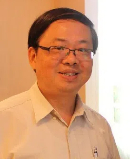
Jyh-Cheng Chen
Professor; Member of IEEE, SNMMI, and FASMI
Department of Biomedical Imaging and Radiological Sciences, National Yang-Ming University, Taiwan, China.
Research Interests:
Imaging, PET, SPECT, Computed Tomography, PET Imaging
Bio: Jyh-Cheng Chen received the BS degree in physics from National Central University, Taiwan, in 1983, and the MS degree in physics and PhD degree in optical sciences from the University of Arizona, USA...more...

Jingwei Xie
Professor of Surgery
Department of Surgery, Division of Transplant Surgery, University of Nebraska Medical Center. USA
Research Interests:
Biomaterials, Tissue engineering, Drug delivery, Regenerative medicine
Bio: Dr. Xie received his bachelor's degree in 1999 and his master's in 2002 from Nanjing University of Technology, China. In 2007, he earned his PhD from the National University of Singapore. He then worked as a postdoctoral fellow in the Xia group at Washington University in St. Louis from 2007‐2010. He is currently a professor in the Department of Surgery, Division of Transplantation and Holland Regenerative Medicine Program at the University of Nebraska Medical Center. He has won several prestigious awards including Most Promising New Invention Award at UNMC in 2017, Maurer Scientific Achievement Award in 2019 and Distinguished Scientist Award at UNMC in 2021.
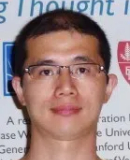
Shao-Min Zhang
Professor; PI in QAAS in Zhejiang University
Qiushi Academy for Advanced Studies (QAAS) in Zhejiang University, China
Research Interests:
Biomedical engineering, Neural engineering, Neuroprosthetics, Brain-computer interfaces, Neurorehabilitation, Motor system neurophysiology, Human cortical physiology using ECoG and EEG, Implantable medical devices
Bio: Dr. Shaomin Zhang is a PI in Qiushi Academy for Advanced Studies (QAAS) in Zhejiang University corrently. He received his B.S. and Ph.D in Biomedical Engineering from Zhejiang University in 2002 and 2007. As a Ph.D student in the lab of Prof. Xiaoxiang Zheng, he studied the protective effects of Chinese traditional medicine on cerebral ischemia using microdialysis and electrophysiological ...more...
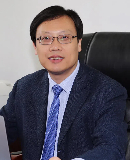
Bin Chen
Professor; Vice director
State Key Laboratory of Multiphase Flow in Power Engineering Energy and Power Engineering School, Xi'an Jiaotong University
Research Interests:
Bio-Heat Transfer and Multiphase Flow in Biomedical Engineering, Numerical simulation techniques of multiphase flow, Hydrogen production by biomass gasification in supercritical water
Bio: Professor Chen, the vice director of State Key Laboratory of Multiphase Flow in Power Engineering, the candidate of Program for New Century Excellent Talents in University. He was employed by National Maritime Research Institute of Japan as a postdoctoral researcher from 2003 to 2004, he has worked at Xi'an Jiaotong University since 1996, he served as the deputy head of multiphase flows professional group of Society of Fluid Mechanics Branch of China, the member of Society of Chemical Engineering of Japan and the member of Society of Engineering Thermophysics of China. Professor Chen has been working on those fields: fundamentals and basic and theoretical applications research of Multiphase Flow, construction of two-phase turbulence model, unstructured mesh generation technology, the interface capturing algorithm and biomedical Multiphase Flow research.

Boris Gramatikov
Professor
Johns Hopkins University, USA
Research Interests:
Current research focuses on developing diagnostic instrumentation for detecting vision abnormalities, mainly in pediatric patients. Of particular interest is the detection of fixation, eye alignment, fixation stability, focus detection etc. Methods include retinal birefringence scanning, eye tracking, acoustic attention attraction and others.
Bio: Dr. Gramatikov is an associate professor in the Division of Pediatric Ophthalmology and Adult Strabismus at the Wilmer Eye Institute. He is a biomedical engineer with expertise in medical instrumentation, electronic hardware, optoelectronics, medical optics, computer software, signal processing, computer modeling and data analysis. His current research interests are detection of central fixation via retinal birefringence scanning in clinical settings. The main goal of his research is to identify and treat children with strabismus (misaligned eyes) or anisometropia (unequal refractive error) before irreversible amblyopia (functional monocular blindness) results.
Dr. Gramatikov has participated in many instrumentation development projects, and has been the principal investigator on two major projects resulting in the development of prototypes of diagnostic devices for pediatric ophthalmology.
Dr. Gramatikov earned his Dipl.-Ing. (BS) degree from the Technical University of Ilmenau, Germany and his Ph.D. in biomedical engineering from the Technical University of Sofia's School of Electronic Engineering and Technology. He joined the Johns Hopkins faculty as a research associate in biomedical engineering in 1996 and was appointed to the Wilmer faculty in 2000.
He is an active member of the Institute of Electrical and Electronics Engineers and his professional achievements have been recognized through several major awards.
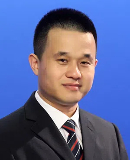
Guang-Zhong Wang
Professor, Principal Investigator
Shanghai Institute of Nutrition and Health, Chinese Academy of Sciences, China
Research Interests:
Our group is interested in how to integrate the analyses and explanation of brain-scale datasets to gain a global level of understanding how the brain works. In addition, we are also interested in the transcriptome dynamics of early brain development and the general design principles of the transcriptional and translational system.
Bio: Guang-Zhong Wang is currently a professor at the Shanghai Institute of Nutrition and Health, Chinese Academy of Sciences. He graduated from the University of Düsseldorf, Germany, with a Ph.D. in Bioinformatics, and subsequently completed postdoctoral training at the UT Southwestern Medical Center in Dallas, US. His main research interests include the analysis and integration of neuroscience multi-omics data and circadian transcriptomic data, particularly single-cell transcriptome data. He has published over 40 papers in international journals, with many as the first or corresponding author in journals such as Neuron, Nature Communications, Cell Discovery, and Cell Reports. He has been invited to present at international conferences in his field, including the Cold Spring Harbor conferences. He is a member of the editorial board of PLOS Computational Biology and serves as a reviewer for journals like Genome Biology, Nature Communications, Molecular Psychiatry, and Bioinformatics, as well as for ERC grants in Europe.

Ing. habil. Jens Haueisen
Professo; Institute Director and Head of Biomedical Engineering Group
Institute of Biomedical Engineering and Informatics, Technische Universität Ilmenau,Germany
Areas of Expertise:
Investigation of active and passive bioelectric and biomagnetic phenomena, Measurement, analysis, forward and inverse modeling of bioelectric and biomagnetic data, Numerical computation of bioelectric and biomagnetic fields, Methods for validation and verification in bioelectric and biomagnetic phenomena, Techniques for electric and magnetic stimulation of the brain, Neuro-ophthalmology
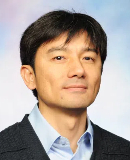
Seongho Kim
Professor
Department of Oncology, School of Medicine, Wayne State University, USA
Areas of Expertise:
Pharmacokinetic/Pharmacodynamic (PK/PD) data analysis; High-throughput data analysis; Disease progressive modeling; Metabolomics.
Bio: Dr. Kim's research interests lie in the data analysis and the methodology development for biological and clinical cancer data. He has participated in various research projects, including pattern recognitions, decision support systems, comparative genomics, proteomics, metabolomics, pharmacokinetics/pharmacodynamics, biomarker discovery, high-dimensional data analysis, pathway analysis, clinical trial design and cancer screening.
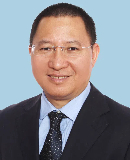
Ming-Liang He
Professor
Department of Biomedical Sciences, City University of Hong Kong, China
Research Interests:
Anticancer • Antiviral • Signal Transduction • Biomarker • Drug Development • Endoplasmic Reticulum (ER) Stress • Innate Immune Response
Bio: Prof. He obtained his PhD degree from Shanghai Institute of Biochemistry (and Cell Biology), Chinese Academy of Sciences (CAS) in 1995. He obtained his postdoctoral training in Roswell Park Cancer Institute at Buffalo (1995–1997) and Washington University School of Medicine at St. Louis in USA (1997–2000). He joined The University of Hong Kong (Institute of Molecular Biology) as Research Assistant Professor in 2000. After SARS outbreak in Hong Kong in 2003, He was appointed as Associate Professor at Stanley Ho Center for Emerging Infectious Disease, Faculty of Medicine, The Chinese University of Hong Kong. He joined Department of Biomedical Sciences at City University of Hong Kong in February 2015.

Simon FONG James
Associate Professor
Department of Computer and Information Science, University of Macau, China
Research Interests:
Bio-inspired optimization algorithms and applications; Business intelligence, e-Commerce, biomedical applications, wireless sensor networks, etc.

EVGİN GÖÇERİ
Associate Professor
Faculty of Engineering, Department of Biomedical Engineering, Akdeniz University, Turkey
Research Interests:
Biomedical Engineering, Biomedical Image Processing, Engineering and Technology